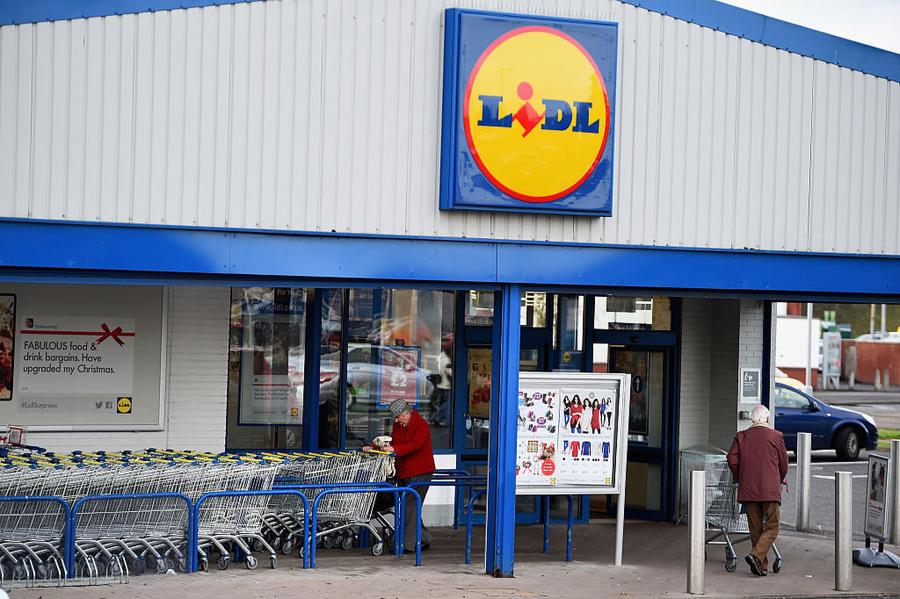What Is Dieter Schwarz's Net Worth?
Dieter Schwarz is a German entrepreneur who has a net worth of $30 billion. Dieter Schwarz is one of the richest people in Germany. At various points he has been the #1 richest person in Germany. He inherited the Schwarz-Gruppe (Schwarz Group) from his father, Josef Schwarz, in the late 70s. The Schwarz Group includes the supermarket chain Lidl, the hypermarket (big-box store) chain Kaufland, the food production company Schwarz-Produktion, and the waste disposal company PreZero. The company's website states, "With 575,000 employees in 32 different countries, the Schwarz Group is among the top retail groups in the world." The company generates around $160 billion per year in revenue. Dieter formerly served as the CEO and chairman of Lidl and Kaufland. As of this writing, there are more than 12,000 Lidl stores and 1,500 Kaufland locations. He also founded the Dieter Schwarz Foundation (Dieter Schwarz Stiftung), which supports various educational and daycare institutions.
Early Life
Dieter Schwarz was born on September 24, 1939, in Heilbronn, Germany. His father, Josef, had been a partner in the fruit wholesaler Südfrüchte Großhandlung Lidl & Co. since 1930, and he later decided to shift the company's focus toward general food. The company was renamed Lidl & Schwarz KG after Josef joined as a shareholder. The company's growth was interrupted by World War II, and it was rebuilt after the war ended, moving into a Heilbronn property in 1954. That year Josef became involved with the A&O retail chain, and he later opened a regional Handels- und Fruchthof Heilbronn GmbH warehouse in northern Württemberg. After Josef passed away in 1977, Dieter inherited the Schwarz Group.
Career
Dieter joined his father's company in 1973 and opened its very first discount grocery store, Lidl. After Josef's death, Schwarz became the CEO of the chain and expanded to other countries. The chain eventually grew to include more than 12,000 locations in over 30 countries, and in 2022, the company made a profit of €1.64 billion. The Schwarz Group also owns the Kaufland hypermarket chain. The first Kaufland store opened in Germany in 1984, and the chain has expanded to Moldova, Croatia, Bulgaria, Slovakia, Romania, Poland, and the Czech Republic. There are more than 1,500 Kaufland locations, and in 2022, the company's revenue was €31.8 billion. The Schwarz Group's food production company, Schwarz-Produktion, specializes in manufacturing store brand products for Lidl and Kaufland. PreZero, the Schwarz Group's waste disposal company, operates through more than 400 locations in the U.S. and Europe. For the 2022/23 fiscal year, the Schwarz Group's revenue was €154.1 billion.

Jeff J Mitchell/Getty Images
Personal Life
Dieter married Franziska Weipert in 1963, and they have welcomed daughters Monika and Regine together. Schwarz is a member of the Protestant free church community. He is protective of his privacy, and according to a 2014 article in "The Guardian," "Dieter Schwarz, whose personal fortune was in 2013 estimated to be €19.6bn, is not just the 24th richest person on the planet, but also one of the most secretive. Only two photographs of the Swabian 74-year-old remain in circulation, one in black and white. Legend has it that he once turned down a medal for entrepreneurial achievement from the state of Baden-Württemberg because he did not want to be photographed."
In 1999, Dieter established the Dieter Schwarz Foundation. According to the organization's website, "The Dieter Schwarz Foundation ranks among the large German foundations; it becomes active where government bodies are not, or not sufficiently, able to meet the needs of the economy and society. 'Promote education, share knowledge, venture future' is the guiding principle of the Foundation, which supports with its commitment today what makes tomorrow's society strong: a wide range of educational opportunities targeting people at different stages of their lives."
/2010/07/CNW-Man-5.png)
/2013/12/Dieter-Schnabel.jpg)
/2014/02/GettyImages-657741222.jpg)
/2014/02/nicola-paolo-bulgari.jpg)
/2015/07/js2.jpg)
/2014/08/GettyImages-87126722.jpg)
/2015/07/ghc.jpg)
/2023/01/Julian-McMahon.png)
/2022/06/joey-chestnut.png)
/2014/07/keith2.jpg)
/2009/11/Sigourney-Weaver.jpg)
/2010/05/Lenny-Kravitz-1.jpg)
/2012/09/Takeru-Kobayashi-1.jpg)
/2019/03/Karol-G.jpg)
/2011/03/Rickie-Fowler-1.jpg)
/2010/03/tw.jpg)
/2016/06/GettyImages-494820822.jpg)
/2010/07/CNW-Man-5.png)
/2013/12/Dieter-Schnabel.jpg)
/2014/07/GettyImages-166073240.jpg)
/2009/09/theo-albrecht-1.jpg)
/2014/02/nicola-paolo-bulgari.jpg)
/2018/09/GettyImages-901462836.jpg)
/2010/05/gw.jpg)
/2012/07/Klaus-Michael-Kuehne.jpg)